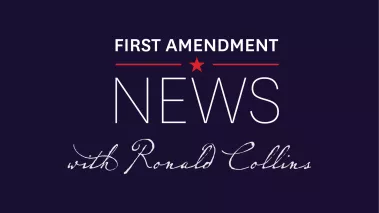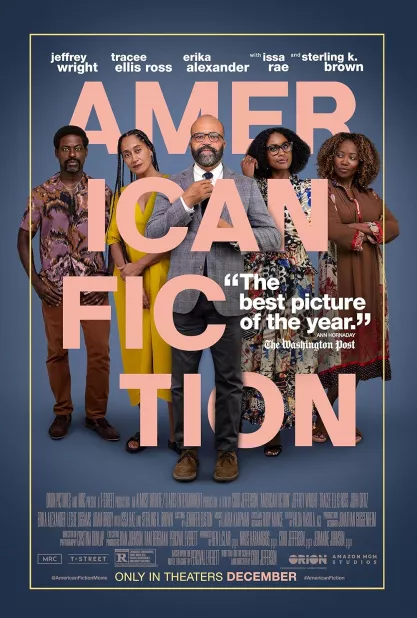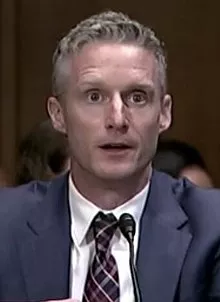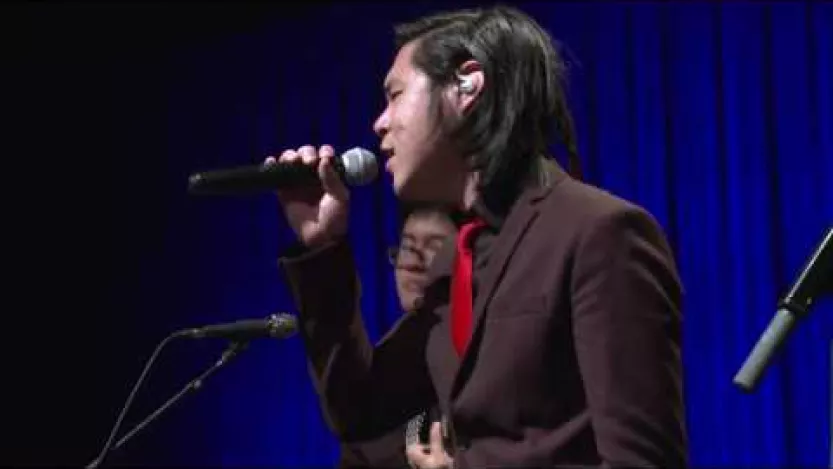Table of Contents
‘American Fiction’ movie takes satirical aim at politically correct white publishing world — First Amendment News 406

First Amendment News is a weekly blog and newsletter about free expression issues by Ronald K. L. Collins. It is editorially independent from FIRE.
Trigger warning: If you are an elite white PC-type editor at a big publishing house with no people of color in powerful positions, what follows may offend you.
Oh, the lengths we liberals go to in the name of equality. And we should! Up to a critical point, that is. Beyond that things can get counterproductive, as when the world and those in it are cabined in the convictions of the self-righteous — those token-minded whites who ordain how others should speak and the rest of us must listen.
A new movie, “American Fiction,” pokes jeering jabs at those types in the publishing world whose so-called liberality stereotypes how people of color should express themselves. This satirical movie (starring Jeffrey Wright, Issa Rae, Sterling K. Brown, John Oritz, and others) is based on a thought-provoking 2001 novel titled “Erasure” by Percival Everett. It is social comedy and commentary at its biting best, with its comical blows delivered by African American actors.

The plot, in a nutshell (as told by Aisha Harris for NPR):
Like a plethora of real and fictional creatives before him, novelist Thelonious “Monk” Ellison, played by Jeffrey Wright . . . initially resists the confines of stereotypical Blackness until he's too desperate to continue resisting. Fed up with multiple rejections of his latest esoteric manuscript, he sets out to write the “Blackest” novel he can imagine, just to prove a point about the industry's shallow interest in Black storytelling. My Pafology — later retitled [“FUCK”] — is a ghetto melodrama penned under the sly pseudonym “Stagg R. Leigh.” . . . It's meant to be a twisted joke but ends up netting him a huge offer. It's swept up by a big corporate publisher, a movie producer, and the reading public, much to Monk's existential angst and his financial benefit.
In an attempt to contest racism, it is all too easy to fall victim to tokenism, at which point a certain hypocrisy sets in — orthodoxy then demands lock-step adherence to its rules even if such rules foster feigned fairness or are counter-productive.
No genuine commitment to combating the vestiges of slavery can take safe harbor in hypocrisy, tokenism, exploitation, or feel-good gestures more concerned with the façade of equality than its actualization. Hence, free speech in the service of equality must speak those truths that would otherwise remain suppressed.

The larger point here is to give a wider berth to what and how we express ourselves — a lesson too often forgotten by conservatives and liberals alike. By that measure, may we always have frank comedy and free-spoken comedians to prick the pretense in us all.
Related
- “Author identity and the politics of suppression in today’s publishing world,” FAN 402 (Nov. 29, 2023)
Norman Lear (1922-2023), who gave us comedy with a social edge
The recent death of Norman Lear is a reminder of his genius in weaving social commentary into comedy in TV productions such as “All in the Family” (205 episodes, 1971-1979). Many of those all-too-candid episodes probably would fall victim to the censorial ways of today’s PC Police. For example, in this episode Archie Bunker speaks out against slavery when Sammy Davis Jr. visits his home:

Tom Smothers (1937-2023) on censorship and free speech
Here too, the recent passing of comedian Tom Smothers affords an opportunity to recall how he and his brother pushed for more free speech even though CBS disagreed and canceled their popular TV show. See Marc Freeman, “How the Smothers Brothers Embraced the Counterculture, Defeated the Censors and Set the Stage for ‘Saturday Night Live’,” Hollywood Reporter (Dec. 29, 2023).
And here’s Smothers interviewed by Ken Paulson for the Freedom Forum in May of 2001, in a segment called “Speaking Freely”:

Related
- Karen Aichinger, “Smothers Brothers Comedy Hour,” Free Speech Center (Sept. 19, 2023)
SCOTUS denies review in conversion therapy case
The case is Tingley v. Ferguson. The issues as presented in Petitioners’ cert. petition are:
(1) Whether a law that censors conversations between counselors and clients as “unprofessional conduct” violates the Free Speech Clause, and (2) whether a law that primarily burdens religious speech is neutral and generally applicable, and if so, whether the Court should overrule Employment Division v. Smith (1990).
The relevant facts and applicable state law
As outlined in the Petitioner’s brief: “Brian Tingley is a licensed marriage and family counselor who helps clients with various issues, including sexuality and gender identity. A practicing Christian, Tingley grounds human identity in God’s design rather than a person’s feelings or wishes. Many of his clients agree and seek his counsel precisely because they want to align their identity with their faith. But Washington censors Tingley from speaking with clients in that way.”
The Washington state law in question prohibits licensed healthcare providers from “[p]erforming conversion therapy on a patient under age eighteen.” Under the law, “[c]onversion therapy” is “a regime that seeks to change an individual’s sexual orientation or gender identity.” Furthermore, such therapy “does not include counseling or psychotherapies that provide acceptance, support, and understanding of clients or the facilitation of clients' coping, social support, and identity exploration and development that do not seek to change sexual orientation or gender identity.”
Lower court ruling
- Tingley v. Ferguson (9th Cir., 2022)
Attorneys for Petitioner
- John J. Bursh was the counsel of record with Kristen Waggoner on the brief as well (both for the Alliance Defending Freedom)
Book ban and subject-teaching law struck down in Iowa
- GLBT Youth v. Reynolds (S.D., IA, Dec. 29)
“A comprehensive and well-reasoned decision upholding fundamental First Amendment principles to strike down one of many state laws sweeping the country banning books and restricting the teaching of subjects relating to race, gender, and LGBTQ identity.” — Stephen Rohde
Excerpt from 46-page opinion by U.S. District Court Judge Stephen H. Locher:

Plaintiffs in two parallel cases seek a preliminary injunction against the enforcement of Senate File 496, which, as relevant here, does three things: (1) requires the removal of any book from Iowa public school libraries that contains a description or visual depiction of a “sex act”; (2) forbids school districts, teachers, and other licensed professionals from, among other things, providing programs, promotion, and instruction to students in grade six or below relating to “gender identity” and “sexual orientation”; and (3) requires school districts to notify a child’s parents if the child requests an accommodation relating to gender identity, such as asking to use different pronouns than those in registration records.
As to the book restrictions, the Court GRANTS the Motions for Preliminary Injunction and ENJOINS the enforcement of Senate File 496. The law is incredibly broad and has resulted in the removal of hundreds of books from school libraries, including, among others, nonfiction history books, classic works of fiction, Pulitzer Prize winning contemporary novels, books that regularly appear on Advanced Placement exams, and even books designed to help students avoid being victimized by sexual assault. The sweeping restrictions in Senate File 496 are unlikely to satisfy the First Amendment under any standard of scrutiny and thus may not be enforced while the case is pending. Indeed, the Court has been unable to locate a single case upholding the constitutionality of a school library restriction even remotely similar to Senate File 496.
As to the restrictions on programs, promotion, and instruction relating to gender identity and sexual orientation, there appears to be a severe misunderstanding—in two different ways— by some of the parties about what Senate File 496 says.
First, nothing in the law restricts the ability of school districts, teachers, or other professionals to provide programs, promotion, and/or instruction of gender identity and sexual orientation to students in grade seven and above. School districts instead have full freedom to offer gay-straight alliances (“GSAs”) or similar clubs that provide resources and support for LGBTQ+ students in grades seven and above. Teachers and other licensed professionals are not restricted in any way from serving as advisors for such GSAs, displaying rainbow flags, providing instruction on gay and transgender rights, and otherwise performing their responsibilities in a manner that emphasizes inclusiveness and respect for LGBTQ+ students in grades seven and above. Likewise, students in grade seven and above are free to engage in whatever forms of expression they wish, subject only to generally applicable restrictions that apply equally to all students. To the extent school districts, teachers, or students have been interpreting the law otherwise, they are simply wrong. It follows that none of the Student Plaintiffs in grade seven or above have standing to challenge the restrictions in Senate File 496 on programs, promotion, and instruction relating to gender identity and sexual orientation. There is nothing for them to challenge.
Second, but conversely, there is also a misunderstanding of Senate File 496 as it relates to students in grade six and below. The law forbids programs, promotion, and instruction to students in those grades relating to “gender identity” and “sexual orientation,” but those terms are defined a neutral way that makes no distinction between cisgender or transgender identity or gay or straight relationships. Meaning: on its face, the law forbids any programs, promotion, or instruction recognizing that anyone is male or female or in a relationship of any sort (gay or straight). The statute is therefore content-neutral but so wildly overbroad that every school district and elementary school teacher in the State has likely been violating it since the day the school year started. This renders the statute void for vagueness under the due process clause of the Fourteenth Amendment because the State will have unfettered discretion to decide when to enforce it and against whom, thus making it all but impossible for a reasonable person to know what will and will not lead to punishment. Because at least two Plaintiffs—one fourth grade student and one sixth grade teacher—have standing to challenge this aspect of Senate File 496, the Court GRANTS the Motions for Preliminary Injunction and ENJOINS the enforcement of the restrictions on programs, promotion and instruction relating to gender identity and sexual orientation.
Finally, no Plaintiff has standing to challenge the provisions of Senate File 496 requiring school districts to notify a child’s parents if the child asks for the use of pronouns that do not match the school’s registration records or otherwise seeks an accommodation relating to gender identity. Only the GLBT Youth Student Plaintiffs challenge this portion of the law, but they are all already “out” to their families and therefore not affected in a concrete way by this requirement. Thus, the Court has no authority to do anything except DENY the GLBT Youth Student Plaintiffs’ Motion for Preliminary Injunction as it relates to this aspect of Senate File 496.
ACLU under attack for ‘suspect’ First Amendment stands in transgender cases
- Chandra Bozelko, “ACLU representing NRA is consistent with its values. Its stance on transgender issues isn't,” USA Today (Dec. 31, 2023)

Many have commended the ACLU for this principled stand, but we shouldn’t praise the civil liberties champion for being free-speech maximalists just yet. The organization’s recent record on First Amendment rights is less than stellar, especially when it comes to the issue of transgender people in prison.
[ . . . ]
The organization's recent positions on the First Amendment rights of individuals seeking information about transgender inmates have been suspect.
[ . . . ]
During the 2022 legislative session, a bill that not only blocked access to any records on transgender inmates but also prevented any information being released about Prison Rape Elimination Act investigations passed the Washington Legislature and was signed into law by Gov. Jay Inslee. The ACLU of Washington Foundation got away with its hypocrisy by not making any specific statement in support of the law but accepting its passage as a settlement of its claims against the state of Washington.
[ . . . ]
[T]he ACLU’s decision to represent the NRA is based on a policy of consistency. And the organization’s stance on transgender issues is anything but consistent with its purported values.
New scholarly article: Sunstein on campus speech
- Cass Sunstein, “Free Speech On Campus? Thirty-Five Questions (and Almost As Many Answers),” SSRN (Dec. 28, 2023)

Does the Constitution guarantee free speech on university campuses? The Supreme Court has essentially said so, at least insofar as we are speaking of public universities. Some private universities are interested in adhering to the First Amendment, even though it does not bind them. But what do First Amendment protections entail or require?
It is clear that in general, universities may not discriminate on the basis of viewpoint. It is also clear that as educational institutions, universities may sometimes regulate speech to protect their essential mission – by, for example, forbidding “true threats,” prohibiting plagiarism, protecting speakers from being shouted down, forbidding students from taking over buildings, and ensuring that students and teachers focus on the topics of their courses.
By exploring thirty-five scenarios, it is possible to concretize these general propositions, and to see which questions are easy and which questions are hard. The broadest conclusion is that to the extent that universities seek to comply with the First Amendment, they must permit a great deal of speech that is offensive, hateful, and even horrifying.
New scholarly article: LoMonte and Greenberg on cameras on campuses
- Frank LoMonte and Lila Greenberg, “(Not) Ready for Their Close-Up: Camera-Shy Colleges Lose First Amendment Focus in Restricting Campus Filming,” University of Pittsburgh Law Review (Nov. 17, 2023)

From gameday to graduation day, college campuses are some of the most-photographed spots in the United States. With their iconic architectural landmarks and rolling greenspaces, campuses are a natural setting for those interested in shooting photos or video, amateurs and professionals alike. And for better or worse, colleges are regularly in the news – whether for research breakthroughs or athletic scandals – which naturally attracts journalistic photography and videography as well.
Yet, despite their park-like atmosphere, state colleges frequently enforce restrictions on photography and videography well beyond what would be regarded as constitutionally permissible in parks and other public spaces. In particular, colleges often insist on pre-approving scripts for films, including news documentaries, conditioning permission to film on a subjective assessment that the script portrays the college flatteringly. This type of viewpoint-based screening far exceeds what would be constitutional on other government property. The question is: Are state college campuses so different from other public spaces to justify rewriting the First Amendment rulebook? This article concludes that the answer is “no,” and that heavy control over filmmaking on college campuses is irreconcilable with their recognized status as havens for the free exchange of ideas.
Much recent scholarship has been devoted to the free-speech climate on college campuses, but this article addresses the issue from a unique and underappreciated perspective: That of the photojournalist or videographer who is denied access to otherwise-public campus property. The article looks at the evolving consensus – rattled by a dissonant recent decision from the D.C. Circuit – that photography and filming are acts of constitutionally protected expression, especially where the shooter is seeking to inform the public about the performance of government institutions. The article then examines the “public forum” status of college campuses, and the recent state legislative trend of declaring the outdoor areas of state colleges to be safe harbors for free expression – which confers forceful First Amendment protection that cannot be abridged simply because colleges find filming to be inconvenient, or the subject matter unflattering.
The authors examine and critique commonplace features seen in dozens of publicly available filming policies enforced by colleges throughout the U.S., and where those policies are most vulnerable to First Amendment challenge. The authors flag several recurring First Amendment issues in campus filming rules, including the failure to impose any standards to prevent decisionmakers from withholding permits based on aversion to the speaker’s viewpoint – a red flag of unconstitutionality, regardless of the forum status of the property. Heavily restricting access to campus property for gathering images, the authors caution, will inhibit newsgathering and documentary filmmaking that can shine scrutiny on campus safety and other issues of public concern. The article concludes with advice for what a constitutionally sound filming policy might look like, pointing to a recently enacted Florida statute that explicitly declares filming and photography to be legally protected expression on campus – a potential model for the rest of the country.
Forthcoming children’s book on The Slants — the band that fought the law and won!
- Mia Wenjen (author) and Victor Bizar Gómez (illustrator), “We Sing from the Heart: How The Slants® Took Their Fight for Free Speech to the Supreme Court” (Red Comet Press, Sept. 10, 2024)

Music is a way to transcend cultures and divides. Simon Tam used his band’s name, The Slants, to make a powerful statement that racist insults could no longer be hurtful to Asian Americans. But then the U.S. Trade and Patent Office tries to stop him. In his eight-year battle to win trademark protection, Simon would go all the way to the Supreme Court in a landmark case (that included Ruth Bader Ginsberg) to rout out structural racism in our government systems.
Written with the full collaboration of Simon Tam, Mia Wenjen takes us back to Simon’s early days and the formation of the band, to the long battle to claim the name they chose to use. We learn of his motivations and the years-long struggle that leads ultimately to the Supreme Court of the United States. Told using lyrics from the band’s hit song about their trademark fight, this compelling story will keep readers riveted until the dramatic ending. We Sing from the Heart gives background and context to the significance of Simon’s quest, not just for him and his band, but for free speech rights for us all. Newcomer to children’s books, Victor Bizar Gómez, channels the indie music world with dynamic artwork that complements the storytelling and is sure to draw in readers with his exciting graphic approach. Includes a foreword by Simon Tam.
Related
- Matal v. Tam (2017)
- “The Slants Live!,”TEDxBend (2017)

YouTube: Corn-Revere on 20th Anniversary of Lenny Bruce’s posthumous pardon
- “Lenny Bruce: The Last Convicted Comedian,” FIRE (Dec. 23, 2023)
On the 20th anniversary of his pardon for "word crimes," Lenny Bruce remains an important free speech icon and a hero to comedians everywhere. FIRE's Chief Counsel Bob Corn-Revere reflects on the legacy of the legendary comedian, as well as his and Ronald K.L. Collins' efforts to secure a posthumous pardon for Bruce — who died penniless of a drug overdose after being convicted for violating New York obscenity and indecency laws. While the pardon came too late to help Bruce, it is a recognition by the state that criminalizing someone for their speech is a violation of individual rights and free expression

More in the news
- Abdelhalim Abdelrahman, “The First Amendment applies to pro-Palestinian viewpoints, too,” The Hill (Dec. 30, 2023)
- Sonam Sheth, “No, the First Amendment probably won't protect you getting fired if you have a pornographic OnlyFans for vegan cooking,” Business Insider (Dec. 29, 2023)
- Stephanie Rodriguez, “UW-La Crosse chancellor fired for making porn videos says first amendment rights, free speech was violated,” CBS 58 (Dec. 28, 2023)
- JaNae, “ACLU sends Shawnee letter of warning: 'No sit, no lie' ordinance violates First Amendment,” The Oklahoman (Dec. 27, 2023)
- John Hult, “State, Minnehaha County agree to pay legal fees after separate First Amendment lawsuit losses,” Dakota News (Dec. 27, 2023)
- “First Amendment claim struck down in Project Veritas case focused on diary of Biden’s daughter,” Politico (Dec. 26, 2023)
- Greg Lukianoff, “Join me in signing ‘A Vision for a New Future of the University of Pennsylvania’," The Eternally Radical Idea (Dec. 13, 2023)
- Illya Shapiro, “Where Free Speech Ends and Lawbreaking Begins,” Manhattan Institute (Nov. 27, 2023)
2022-2023 SCOTUS term: Free expression and related cases
Review granted
- Vidal v. Elster (argued Nov. 1, 2023)
- O’Connor-Ratcliff v. Garnier (argued Oct. 31, 2023)
- Moody v. NetChoice, LLC / NetChoice, LLC v. Paxton / NetChoice, LLC v. Moody
- National Rifle Association of America v. Vullo
Pending petitions
- Molina v. Book
- Pierre v. Attorney Grievance Commission of Maryland
- Porter v. Martinez
- Brokamp v. James
- Porter v. Board of Trustees of North Carolina State University
- Alaska v. Alaska State Employees Association
- Speech First, Inc. v. Sands
- O’Handley v. Weber
State action
- Lindke v. Freed (argued Oct. 31, 2023)
Review denied
- Tingley v. Ferguson (Justice Kavanaugh would grant the petition for a writ of certiorari. Justice Thomas, dissenting from the denial of certiorari. (separate opinion) Justice Alito, dissenting from the denial of certiorari. (separate opinion)).
- Jarrett v. Service Employees International Union Local 503, et al
- Sharpe v. Winterville Police Dept.
- Winterville Police Department v. Sharpe
- Stein v. People for the Ethical Treatment of Animals, Inc., et al.
- Blankenship v. NBCUniversal, LLC
- Center for Medical Progress v. National Abortion Federation
- Frese v. Formella
- Mazo v. Way
Free speech related
- Miller v. US (pending) (statutory interpretation of 18 U.S.C. § 1512(c) advocacy, lobbying and protest in connection with congressional proceedings)
Previous regularly scheduled FAN
FAN 405: “‘Your words are offensive!’ — ‘Pardon me?’ — The 20th anniversary of Lenny Bruce’s posthumous pardon”
This article is part of First Amendment News, an editorially independent publication edited by Ronald K. L. Collins and hosted by FIRE as part of our mission to educate the public about First Amendment issues. The opinions expressed are those of the article’s author(s) and may not reflect the opinions of FIRE or of Mr. Collins.
Recent Articles
Get the latest free speech news and analysis from FIRE.

Can the government ban controversial public holiday displays?

The trouble with banning Fizz

FIRE's 2025 impact in court, on campus, and in our culture


